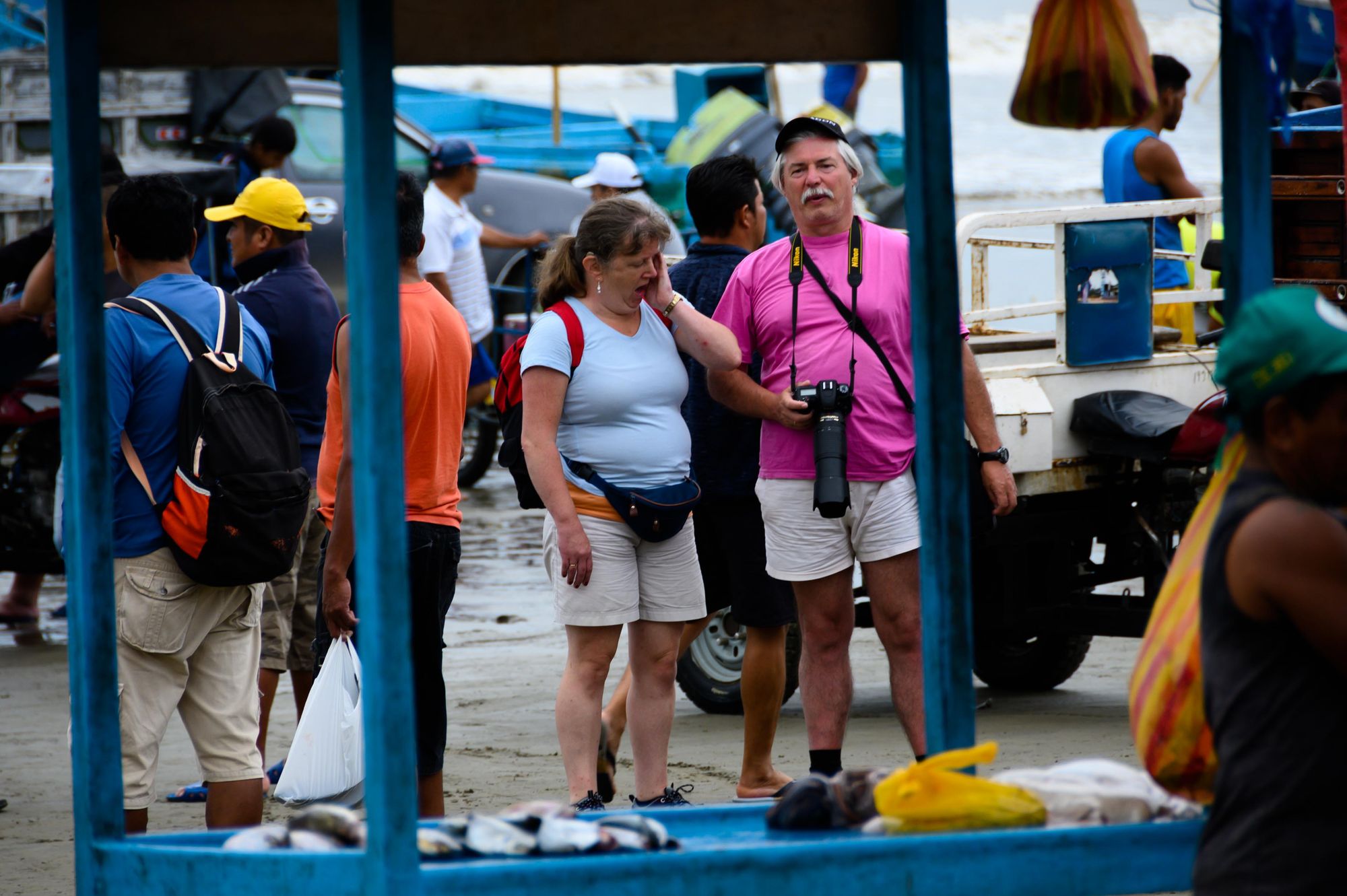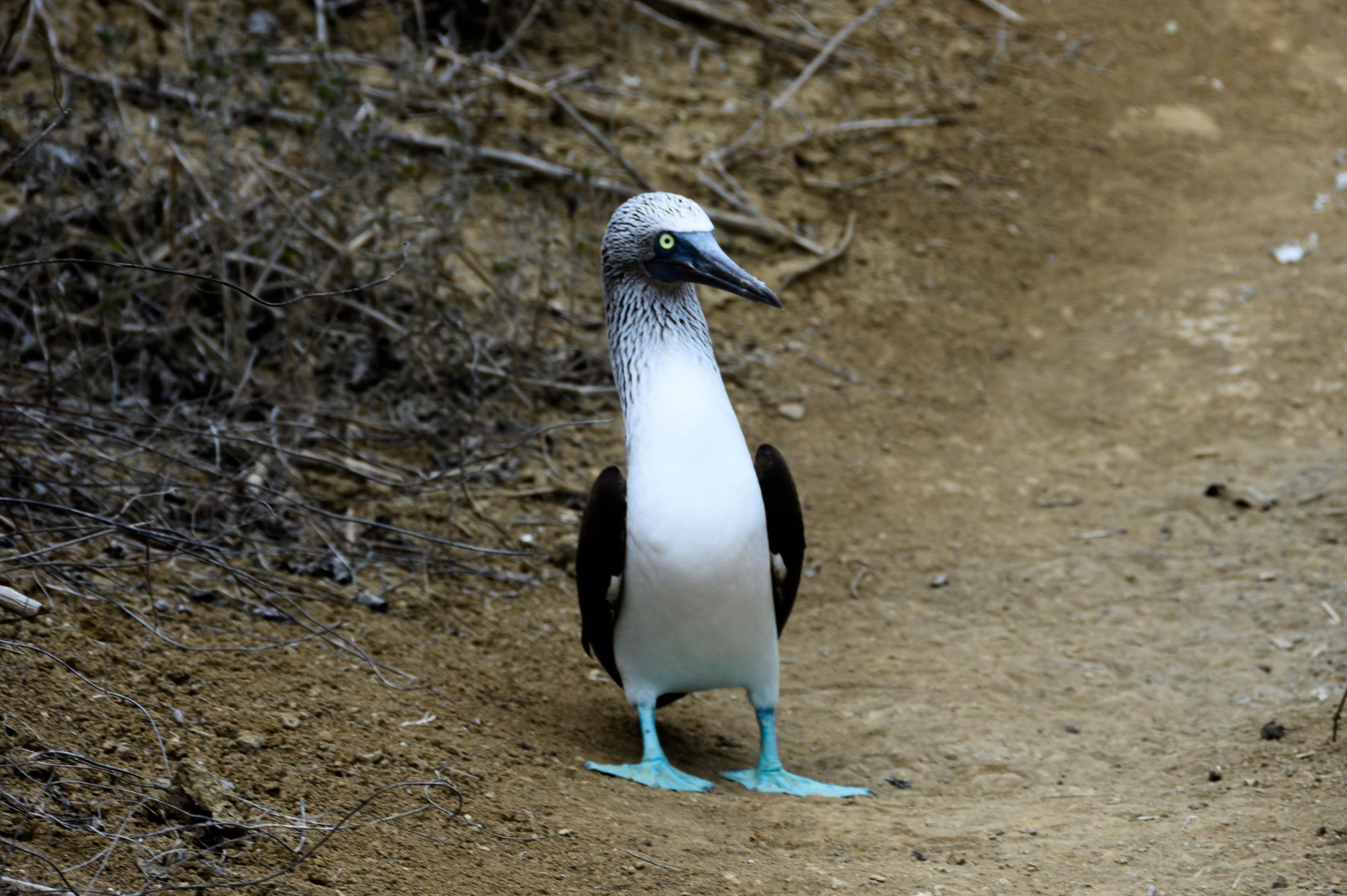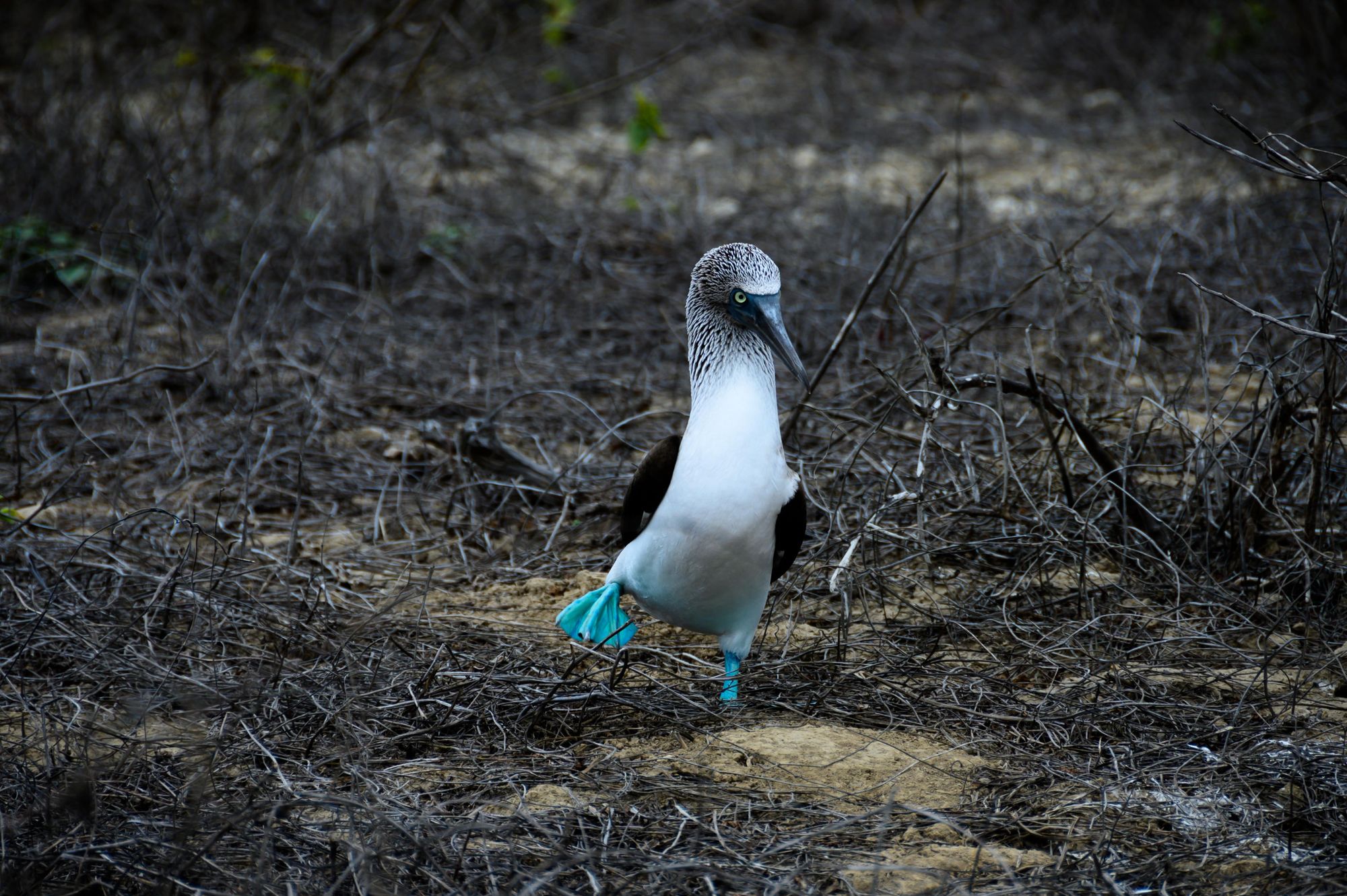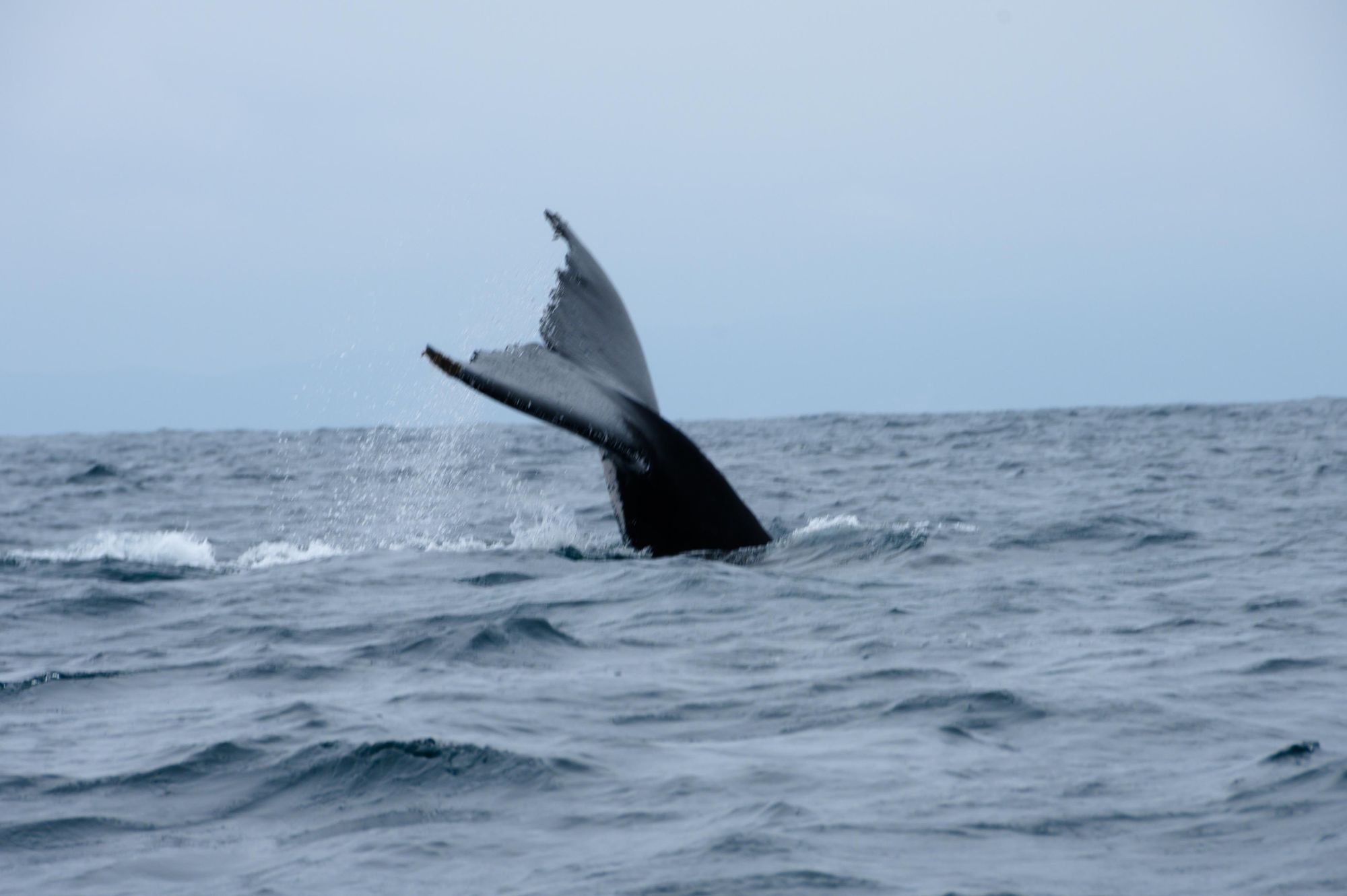Isla de la Plata
Going on an organised boat trip is not really our thing, but we really wanted to see the boobies and whales, so we decided to go for it. Looking at the potential boat mates, our expectations of the trip were quite low.

Isla de la Plata is an uninhabited island, which is part of the Machalilla National Park, just 40km off shore of Puerto Lopez. The name (Silver Island) is due to the colour, which is a result of sea birds spitting and pooping out the salty Pacific water. It is sometimes dubbed as 'poor people's Galapagos', as it allows you to observe wildlife without the need to set aside a week of your time and $1000.
The town of Puerto Lopez offers a one-fitting-all kind of tour, so going to the island means spending the whole day on the trip, including whale watching and snorkling, even though on the island itself you spend around 2 hours.
The island gives a serene and peaceful feeling but it is not a good thing. From what the guide told us, the last 10 years have seen a huge decline in the birds population - it used to be filled with the sounds of thousands of birds and now, despite the huge conservation efforts in the island itself, the numbers of birds are falling into what appears to be the hundreds. The decline in fish numbers (due mainly to overfishing) leaves the birds with limited food resources.
The island is washed up with plastic from the ocean - despite the rangers' ongoing efforts, who as recently as few months ago collected some 300kg of plastic from the shoreline.
It is hard not to wonder - would there be any pristine landscapes left for our children and grandchildren to see... or even us? Will we be stuck with the hotel maintained "beaches" that can keep you fooled in your bubble? If conservation efforts don't really help, what will happen to the beaches, rivers and forests that are left on their own? If we can lose 70% of the bird population in 10 years, what will the next 10 years bring?
Do we want to live in the world without those guys?


Or will we finally start living within our means and take the plastic polution seriously?
Imagine a time when there are future civilisations finding and discovering the archeological sites we leave behind? Would they be as impressed as we are with the Romans, or the Incas? What will they think and how would they describe our civilisation when they find 10,000 of the same plastic keyring from your Christmas cracker scattered from Shanghai to New York?
